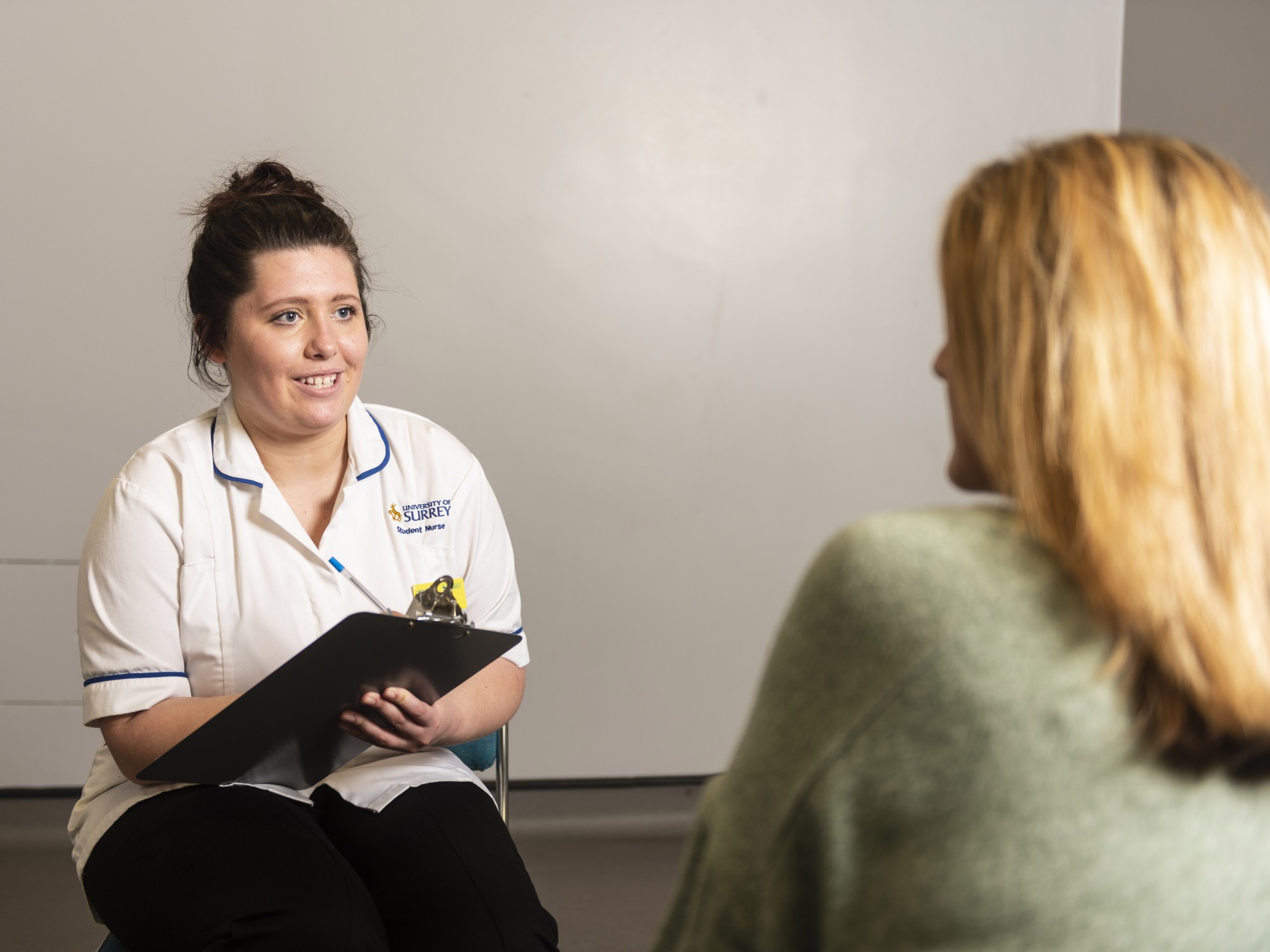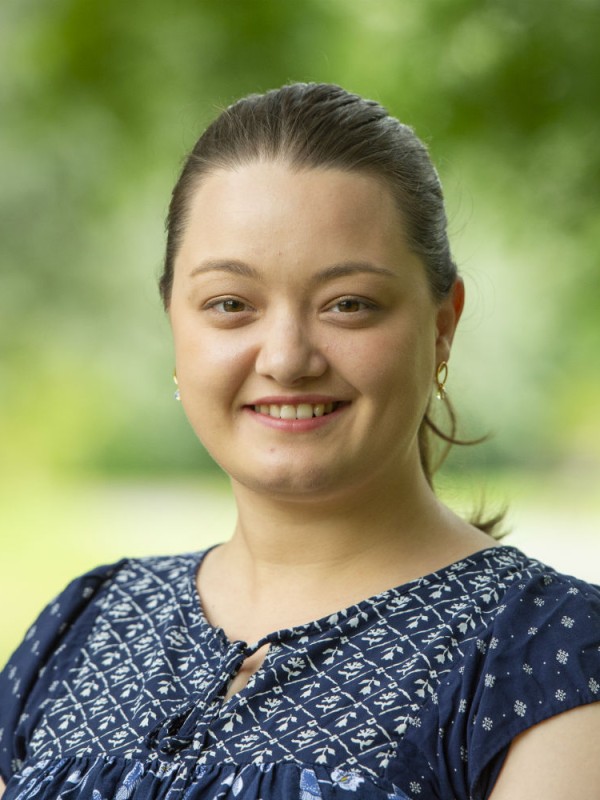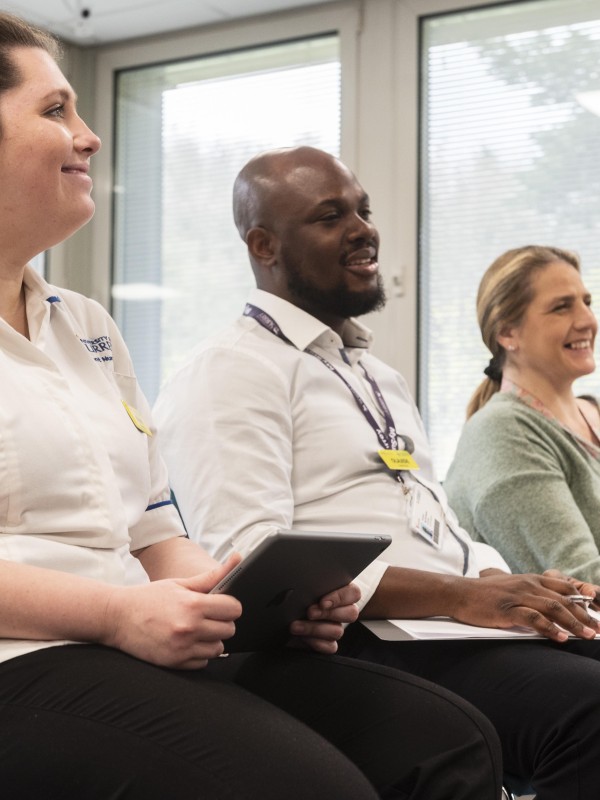
- Education for Health Professionals
MA — 2026 entry Education for Health Professionals
On our Education for Health Professionals MA, you’ll study a hands-on, clinical curriculum that will enable you to inspire and nurture new talent to meet modern healthcare demands.
4,138+ people have created a bespoke digital prospectus
Why choose
this course?
- Learn how to support the health and social care workforce, including existing and aspiring medics, midwives, nurses, paramedics, physiotherapists and allied health professionals.
- Benefit from the expertise of a multidisciplinary team of lecturers, including registered professionals with experience of working in the NHS.
- Gain qualified teacher status to become an educator within healthcare practice.
Statistics
92%
Of our postgraduate health sciences graduates are in employment or further study (Graduate Outcomes survey 2025, HESA)
What you will study
You’ll enhance your analytical and critical thinking skills, whilst developing the sharp judgement, empathy and creativity that both modern teaching and professional practice within healthcare demand. You’ll explore and analyse key educational and leadership issues in health and social care, while challenging and debating contemporary theory and practice.
You’ll also complete a research dissertation in an area of personal interest, which we’ll match with the expertise of our academic staff, ensuring you get the best support.
Facilities
You’ll benefit from our multimillion-pound facilities, including our lecture theatres and seminar rooms, designed to promote knowledge exchange and networking with other health and social care professionals.
This part-time course provides flexibility to complete modules, taking between 3 years and 4 months to 5 years to complete (dependent on how many modules you select to study at any given time), allowing you to fit your study around existing commitments.
The structure of our programmes follows clear educational aims that are tailored to each programme. These are all outlined in the programme specifications which include further details such as the learning outcomes:
Modules
Modules listed are indicative, reflecting the information available at the time of publication. Modules are subject to teaching availability, student demand and/or class size caps.
The University operates a credit framework for all taught programmes based on a 15-credit tariff, meaning all modules are comprised of multiples of 15 credits.
Course options
Unstructured years
Semester 1
Core
The module provides the students with a comprehensive understanding of how people learn in a learning environment with an emphasis on what constitutes an effective learning setting and how this is conducive for learning. Through a series of lectures and facilitated groupwork students will identify educational strategies that can be used to ensure that the student learning journey is meaningful. These concepts will be underpinned by learning theories which will help the students construct an understanding of how people learn in their own environments.
View full module detailsThis module is designed to meet the needs of professionals working in health and social care who are interested in introducing change within their practice environment. The module will explore the current healthcare agenda, examining the need for change to meet the contemporaneous needs of the population. Students are encouraged to reflect upon how innovative practice could transform service delivery to improve experience quality, relative to their own area of practice.
View full module detailsSemester 2
Core
This module provides students with a fundamental understanding of the core principles of engaging, supporting and leading people. Students will be empowered to support or create workplaces where staff thrive and collaborate, enabling patients and users of health and social care services to feel safe and supported. Exploring the concepts of care, compassion, courage, and vulnerability, to develop skills in enhancing relationships and creating safe environments.
View full module detailsSemester 1 & 2
Core
The module enables students to understand the theoretical and practical aspects of research; how to design research informed by theoretical, methodological and practical issues; and how to prepare a research proposal relevant to health and social care practice. The module provides students with the knowledge, skills and confidence in planning and writing a research proposal that can be taken forward to the dissertation module.
View full module detailsThis module uniquely combines theoretical knowledge with practical application, ensuring that students not only understand the principles of effective teaching but also can apply these principles in their specific professional contexts, allowing them to determine the type of educator they wish to become. During the module students will deepen their knowledge and understanding of the complexities of learning and teaching, assessment, and evaluation to enhance their expertise in these areas of professional practice.
View full module detailsThe module empowers students to explore the intricacies of creative educational design and development, within their specialist area, from implementation, delivery, and evaluation of learning. In addition to interprofessional learning, there will be opportunities for students from different professional disciplines to develop educational provision whilst reflecting upon and fostering a critical exploration of educational philosophy and pedagogic practices. Equipping them with the skills to design and assess innovative learning strategies aimed at enhancing the overall learning experience. In essence, students will gain a holistic perspective on education and develop the ability to create and evaluate novel approaches to facilitate effective learning journeys.
View full module detailsThis module empowers health and social care professionals to examine the factors contributing to workplace safety and the care of patients/service users, considering the influence of human factors on safety. Additionally, the module encourages students to critically assess the interplay between national patient safety policies and their impact on local guidelines and policies. Moreover, students will cultivate a critical understanding of the intricate legal and ethical issues affecting patient safety. They will also scrutinise the role of accountability in effectively managing safety and risk in the workplace.
View full module detailsAcross academic years
Core
The dissertation module supports students to plan, undertake and report on a substantial original project that is relevant to their professional practice and their workplace organisations. Students will choose a topic area of their interest and will be supported throughout the project by a named supervisor. The project will involve developing a relevant research question and outlining the relevant policy context, carrying out a literature review, developing a robust methodology, collecting/identifying and analysing/synthesizing data, and to critically discuss the relevance of the findings to practice and current knowledge. Students will gain confidence in understanding and applying the research process. The students will have the opportunity to develop skills in research leadership, critical thinking, and writing, translating knowledge into practice, literature reviewing and digital knowledge.
View full module detailsOptional modules for Unstructured (3-5 years) - FHEQ Level 7
For further information regarding programme structure and module selection, please refer to the course catalogue.
Teaching and learning
You’ll be taught by qualified healthcare practitioners and senior teaching staff, giving you a combination of both clinical and educational expertise.
There may be occasions when the delivery of your teaching is supported by graduate teaching assistants. The University has a set of procedures that govern the use of postgraduate research students in this way.
Learning methods
- Group work
- Independent study
- Lectures
- Online learning
- Role play
- Seminars
- Tutorials
Assessment
We use a variety of methods to assess you, including case studies, presentations and written work.
Check individual module information to see full details at a module level.
General course information
Contact hours
Contact hours can vary across our modules. Full details of the contact hours for each module are available from the University of Surrey's module catalogue. See the modules section for more information.
Timetable
Students will receive a timetable at the beginning of each module. If you have not applied for any modules, please contact the programme leader who will arrange a tutorial with you.
Scheduled teaching can take place on any day of the week (Monday – Friday), with part-time classes normally scheduled for one or two days.
Location
Our medicine, paramedic science, nursing and midwifery, and CPD health sciences courses are taught at the Kate Granger Building (30 Priestley Road) on the Surrey Research Park.
Some modules on this course will be taught on Stag Hill campus.
We offer careers information, advice and guidance to all students whilst studying with us, which is extended to our alumni for three years after leaving the University.
By completing this course, you’ll fulfil the growing demand for excellent teachers within the healthcare sector. Our alumni typically work for the NHS, private healthcare organisations and academic institutions.
Visit the NHS careers website for further information.
UK qualifications
A minimum of a 2:2 in a relevant UK honours degree, or a recognised equivalent international qualification.
You must be currently registered as a healthcare professional to apply.
For information on entry requirements based on international qualifications, please contact the admissions team with details about where you studied and the content of your qualification.
English language requirements
IELTS Academic: 7.0 overall with 7.0 in each element.
These are the English language qualifications and levels that we can accept.
If you do not currently meet the level required for your programme, we offer intensive pre-sessional English language courses, designed to take you to the level of English ability and skill required for your studies here.
Selection process
Applications are screened for standard documentation and then referred to the programme lead for review.
International students travelling to the UK
Due to the module structure of this programme, we are unable to provide sponsorship on the Student Route. International students should make use of the Visitor Visa Route to attend the practical component of the programme. Further details can be found on our apply for a visa page.
Unfortunately, the University cannot guarantee that Visitor Visa applications will be successful, and a refusal may result in students being unable to successfully complete the programme.
Scholarships and bursaries
Discover what scholarships and bursaries are available to support your studies.
Fees
The majority of students on this course will be funded through sponsorship arrangements with their NHS trust employer.
If you would be self-funding, please contact cpdinvoicing@surrey.ac.uk for information regarding the fees.
This course is self-paced, so students will pay fees on a module-by-module basis, please see our modules for further information.
Additional costs
- Travelling expenses such as those incurred for travelling between their clinical practice area and the University
- General programme related costs such as study materials
- Potential costs involved in working/studying remotely e.g. internet connection etc.
Apply online
To apply online first select the course you'd like to apply for then log in.
Select your course
Choose the course option you wish to apply for.
Sign in
Create an account and sign into our application portal.
Please note that we may have to close applications before the stated deadline if we receive a high volume of suitable applications. We advise you to submit your application as soon as it is ready.
ApplyAdmissions information
Once you apply, you can expect to hear back from us within 14 days. This might be with a decision on your application or with a request for further information.
Our code of practice for postgraduate taught admissions explains how the Admissions team considers applications and admits students. Read our postgraduate applicant guidance for more information on applying.
About the University of Surrey
Need more information?
Contact our Admissions team or talk to a current University of Surrey student online.
Terms and conditions
When you accept an offer to study at the University of Surrey, you are agreeing to follow our policies and procedures, student regulations, and terms and conditions.
We provide these terms and conditions at offer stage and are shown again at registration. You will be asked to accept these terms and conditions when you accept the offer made to you.
View our generic registration terms and conditions (PDF) for the 2025/26 academic year, as a guide on what to expect.
Disclaimer
This online prospectus has been published in advance of the academic year to which it applies.
Whilst we have done everything possible to ensure this information is accurate, some changes may happen between publishing and the start of the course.
It is important to check this website for any updates before you apply for a course with us. Read our full disclaimer.










